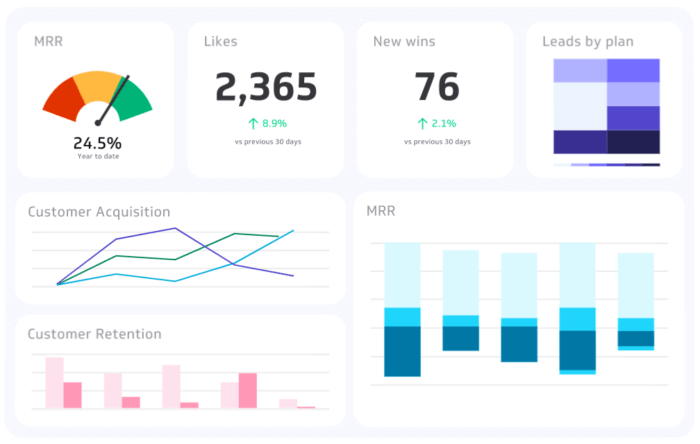Good digital marketing isn't just about creating content, you also need to review your performance to see where it can be improved
How often do you review your marketing performance?
Creating great content for the various channels you use for your marketing campaign, whether they be social networks, your website or blog, or any other channel you’re using to connect with your audience, isn’t really enough to get you results.
Need a winning marketing strategy?
Book your free 1-2-1 consultation to develop your new strategy with the RACE Framework
Book consultation
The only way to continue growing and evolving is to constantly improve and optimize your marketing strategies. In order to do this, you need to review your marketing performance, consistently.
Our Content Marketing Learning Path supports members to plan their approach and increase the effectiveness of their content marketing activities with practical skills development and resources to measure and benchmark their success.
Core Module

Benchmarking your content marketing
Part of the Content marketing Toolkit
Learn how to review the process of managing content marketing to identify areas where you may need to improve your capabilities
Learn MoreIn this blog post, discover why reviewing marketing performance should be at the top of your priority list in 2021.
When should you be reviewing your marketing performance?
Reviewing marketing performance is very much a continuous process, something that should be done regularly to ensure your strategies are getting the results you want (among other things, which we’ll get into in this blog post).
That said, there are several moments when reviewing marketing performance is essential:
Before you create a new strategy
In order to ensure your new strategies deliver better results than previous ones, you need to understand what works and what doesn’t. For example, one study has found that companies that A/B test every email see email marketing returns that are 37% higher than those of brands that never include A/B tests.
Moreover, a survey of content marketers found that only 32% 'always checked the analytics' of their blog posts, without which you are essentially guessing your way to a content strategy without any data.
When you’ve reached your deadline
Every time you create a strategy, you need to also have clear marketing objectives. A good objective requires that you put a deadline on it too – do you need to achieve these results in 30 days? A couple of weeks? Six months? Whatever it is, whenever you reach that deadline you should evaluate your results to see whether you’ve reached your goals or not.
Core Module

Define content marketing strategy
Part of the Content marketing Toolkit
Learn how to develop a content marketing strategy using our content analysis and planning tools
Learn MoreThroughout your marketing campaigns
Once you’ve started a marketing campaign, you should consistently track its performance to see how you can improve it. For example, if you’ve started an email marketing campaign to promote a service and people aren’t opening those emails, then you clearly need to make some changes to improve those results and ensure you’re on track to reach your campaign objectives.
When planning your marketing budget
Another important time to review your marketing performance is when you’re planning your marketing budget. You need to know where to place your budget, what tools you need to purchase and which to eliminate from your stack, which channels work best and which don’t. By now, you’ve already got a better idea of why reviewing marketing performance is so important.
Are you spending your marketing budget wisely?
The harsh truth is that if you’re not getting the results you need, or if you can’t demonstrate the value of your marketing work, it can lead to a slash in your marketing budget.
In order to avoid that (and even get a budget increase!), you need to demonstrate the value of your work.
In other words, you need to prove the ROI (return on investment) of your marketing campaigns and how that ties into the overall business revenue.
Core Module

Evaluate content marketing ROI
Part of the Content marketing Toolkit
Learn how to prove the effectiveness and ROI of content marketing and understand how to estimate content creation and distribution costs
Learn MoreUnderstand your marketing performance: what works – and what doesn’t
When you evaluate your performance, you get to understand what works and what doesn’t work:
- Which channels generate good results and which you should remove from your strategy (or cut down their budget).
- Which strategies work and get you the results you’re looking for: When something performs very well, it’s important to try to understand why it worked so that you can replicate that success in the future. Let’s say you create a guide that generated huge amounts of traffic and shares – what can you learn from this that will help with your future campaigns?
- Which strategies don’t work: For example, if you’re running an email marketing campaign to promote a product or service, you’ll need to consistently evaluate your results to see if your audience is taking action. If your emails get very few opens, then you need to work on your subject lines. If your clickthrough rate is very low, then you need to change the content of your email and your call to action – and so on.
Advanced Module

Building Cornerstone content
Part of the Content marketing Toolkit
Learn about the benefits of creating cornerstone content and a structured process for creating it
Learn MoreOptimize your marketing strategies for better results
This actually relates a lot to the previous point – when you understand what works and what doesn’t work by consistently evaluating your results and performance, you can optimize your strategies as you go along, for better results.
This is particularly useful for social media strategies, advertising campaigns, email marketing, and conversion optimization.
In order to optimize these strategies, make sure to always monitor your results to see what can be improved.
This way, your campaigns will perform better and you’ll reach your marketing objectives faster and even more importantly: prove the ROI of your campaigns.
To help, you can use a business/marketing dashboard that allows you to collect and display your stats from across different channels – some great options are Cyfe and Klipfolio, which basically allow you to connect your different apps and tools and track all your marketing analytics in one place.

What’s great about this is that you have complete control over what you see in your dashboard, so you can focus solely on the KPIs (key performance indicators) that matter the most to you.
Prove your marketing return on investment
Every time you develop a new marketing campaign, there should be an objective behind it: whether it’s boosting brand awareness or generating more leads or sales, or any other marketing objective you might have.
What’s more, you also need to establish clear KPIs that will allow you to evaluate the success of these objectives.
This is so that you can ultimately prove the return on investment that your marketing campaigns bring.
With some types of marketing strategies, it can be difficult to prove ROI – particularly when it comes to social media marketing and some types of content marketing campaigns (business blogs, guest blogging campaigns and so on). However, it’s still important that you prove the value of these campaigns and how they tie in with revenue.
Conclusion
As you can see, there are numerous and very important reasons why reviewing marketing performance is important.
The truth is, it’s becoming increasingly important to do so in 2020. As the competition is so fierce online, you need to consistently search for ways to improve and optimize your marketing strategies and the only way to do that, is through data that helps you understand what works and what doesn’t.


















